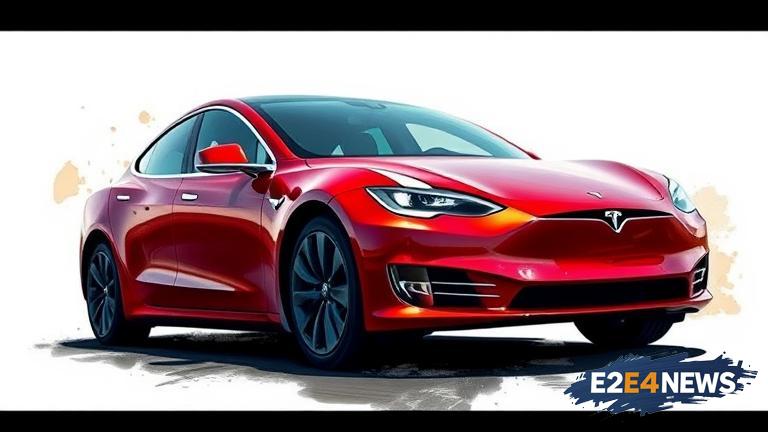A jury has ruled in favor of the plaintiffs in a lawsuit against Tesla, ordering the company to pay $243 million in damages over a fatal crash involving the Autopilot system. The verdict is a significant setback for Tesla’s self-driving ambitions, which have been a key focus of the company’s development efforts in recent years. The crash in question occurred in 2019, when a Tesla Model 3 collided with a tractor-trailer on a Florida highway, resulting in the deaths of two passengers. The plaintiffs argued that the Autopilot system was defective and that Tesla had failed to properly warn drivers of its limitations. The jury agreed, finding that Tesla was liable for the damages. The verdict is a black eye for Elon Musk’s self-driving ambitions, which have been a key part of the company’s vision for the future of transportation. Musk has long touted the potential of Autopilot to revolutionize the way people travel, but the system has been plagued by controversy and criticism. The National Transportation Safety Board (NTSB) has investigated several crashes involving Autopilot, and the system has been criticized for its limitations and potential for driver distraction. Despite these concerns, Tesla has continued to develop and refine the Autopilot system, with the goal of eventually achieving full self-driving capability. However, the recent verdict is a significant setback for these efforts, and raises questions about the safety and reliability of the system. The plaintiffs’ lawyers argued that Tesla had prioritized profits over safety, and that the company had failed to properly test and validate the Autopilot system. The jury’s verdict suggests that these arguments were persuasive, and that Tesla will need to take steps to address the concerns raised by the lawsuit. The company has already faced regulatory scrutiny over the Autopilot system, with the NTSB and other agencies investigating several crashes. The recent verdict is likely to add to this scrutiny, and may lead to increased regulatory pressure on the company. In addition to the financial damages, the verdict is also a reputational blow to Tesla, which has long been seen as a leader in the development of autonomous vehicle technology. The company’s stock price fell in response to the news, as investors reacted to the potential implications of the verdict. The verdict is also likely to have implications for the broader autonomous vehicle industry, which has been watching Tesla’s development efforts with interest. Other companies, such as Waymo and Cruise, have also been developing self-driving systems, and may be affected by the regulatory and reputational fallout from the verdict. As the industry continues to evolve, it is likely that we will see increased scrutiny of autonomous vehicle technology, and a growing focus on safety and reliability. The recent verdict is a reminder that the development of self-driving cars is a complex and challenging task, and that companies will need to prioritize safety and transparency in order to succeed. In the wake of the verdict, Tesla will need to take steps to address the concerns raised by the lawsuit, and to demonstrate a commitment to safety and reliability. This may involve additional testing and validation of the Autopilot system, as well as increased transparency about its limitations and potential risks. The company will also need to work to rebuild trust with regulators, investors, and the public, which may be a challenging task in the aftermath of the verdict. Ultimately, the recent verdict is a significant setback for Tesla’s self-driving ambitions, but it is not necessarily a fatal blow. The company has a long history of innovation and perseverance, and it is likely that it will continue to develop and refine the Autopilot system in the years to come. However, the verdict is a reminder that the development of autonomous vehicle technology is a complex and challenging task, and that companies will need to prioritize safety and transparency in order to succeed.
